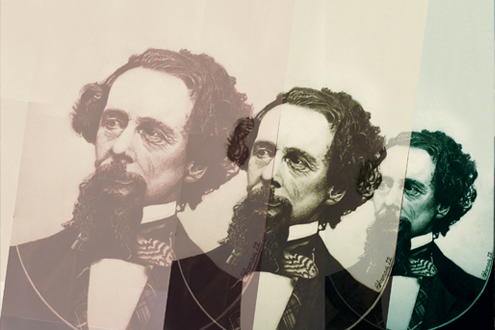What the Dickens!
Richard Lederer gives us a quiz on the great Charles Dickens
Last month, we celebrated on this page the bicentennial of the birth of one of the world’s most beloved authors. Two centuries ago — on February 7, 1812 — Charles John Huffam Dickens entered the earthly stage. Born into an impoverished family, his father having served a term in debtor’s prison, Charles, worked as a child slave in a London blacking factory.
The rags-to-riches life of Charles Dickens’s was more remarkable than any of his stories. From such unpromising origins, he arose to become the best-selling writer of his time and one of the most enduring and quotable writers of all time.
1. List as many titles as you can of Charles Dickens’s 15 novels.
2. In what Dickens novels do each of the following characters appear?:
(a) Sam Weller
(b) Bill Sykes
(c) Little Nell
(d) Mr. Pecksniff
(e) Mr. Micawber
(f) Esther Summerson
(g) Thomas Gradgrind
(h) Sydney Carton
(i) Miss Havisham
3. One signature of Dickens’s quotable writing style is the great number of memorable opening sentences. Identify the Dickensian works that are launched by each of the following “button-holers”:
(a) “It was the best of times, it was the worst of times, it was the age of wisdom, it was the age of foolishness, it was the epoch of belief, it was the epoch of incredulity, it was the season of Light, it was the season of Darkness, it was the spring of hope, it was the winter of despair . . . .”
(b) “My father’s family name being Pirrip, and my Christian name Philip, my infant tongue could make of both names nothing longer or more explicit than Pip.”
(c) “Marley was dead, to begin with . . . . “
(d) Whether I shall turn out to be the hero of my own life, or whether that station will be held by anybody else, these pages will show.”
(e) “Among other public buildings in a certain town, which for many reasons it will be prudent to refrain from mentioning, and to which I will assign no fictitious name, there is one anciently common to most towns, great or small: to wit, a workhouse…
4. Dickens also bequeathed us some of the most whimsical and enduring names in all literature. Fill in the blanks for each of the following names:
_____ Scrooge
_____ Marley
_____ Cratchit
The Artful _____
_____ Magwitch
_____ Quilp
_____ Pickwick
_____ Squeers
Uriah ____
Answers
1. Dickens’s novels in chronological order: The Posthumous Papers of the Pickwick Club, The Adventures of Oliver Twist, or the Parish Boy’s Progress, The Life and Adventures of Nicholas Nickelby, The Old Curiosity Shop, Barnaby Rudge, The Life and Adventures of Martin Chuzzlewit, Dealings with the Firm of Dombey and Son, & c. The Personal History of David Copperfield, Bleak House, Hard Times for These Times, Little Dorrit, A Tale of Two Cities, Great Expectations, Our Mutual Friend, The Mystery of Edwin Drood (unfinished).
2. (a) The Posthumous Papers of the Pickwick Club (b) The Adventures of Oliver Twist, or the Parish Boy’s Progress (c) The Old Curiosity Shop (d) The Life and Adventures of Martin Chuzzlewit (e) The Personal History of David Copperfield
(f) Bleak House (g) Hard Times for These Times
(h) A Tale of Two Cities (i) Great Expectations
3. (a) A Tale of Two Cities (b) Great Expectstions (c) A Christmas Carol (d) The Personal History of David Copperfield (e) The Adventures of Oliver Twist, or the Parish Boy’s Progress
4. Ebenezer Scrooge, Jacob Marley, Bob Cratchit, The Artful Dodger, Abel Magwitch, Daniel Quilp, Samuel Pickwick, Wackford Squeers, Uriah Heep
Richard Lederer M.A.T. English and Education, Ph.D. Linguistics, is the author of more than 40 books on language, history, and humor. His new book A Tribute to Teachers, is available now at his web site — www.verbivore.com. Write him at [email protected].



